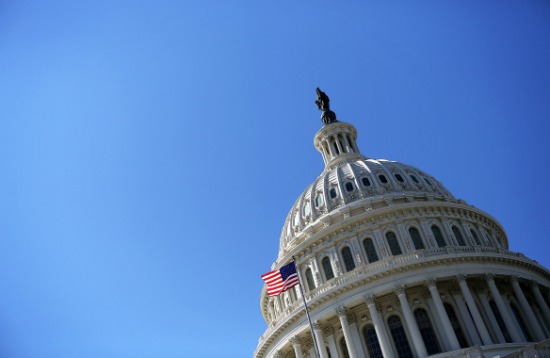The donor rolls of the National Rifle Association and Planned Parenthood do not share many of the same names. But these organizations’ responses to the events of recent months—especially the Sandy Hook shooting and the trial of Kermit Gosnell—have demonstrated that they do share a troubling characteristic. Both reject reasonable limitations on the particular liberty for which they advocate. In so doing, they disregard the well-regulated liberties that vast majorities of our country desire.
Polling statistics show that American citizens overwhelmingly support modest limitations on the rights to gun ownership and abortion. These lobbies thus distort our civic discourse about fundamental rights and responsibilities. They draw inaccurate caricatures of what is, in fact, an informed and reasonable body politic.
Gun rights and abortion rights have both been recently brought to public attention by tragedy. In the aftermath of the Sandy Hook shooting, coverage shows that most citizens support some form of legislation to regulate gun safety. Polls showed a response rate of up to 90 percent in favor of new regulations. But even with 55 senators in support, the “gun bill” did not pass. And the NRA’s main response was to offer to spearhead gun safety education across the country. Meanwhile, activists have used undercover videos to show how easy it is to exploit loopholes in existing laws. “You’re not a felon this week. Next week…,” says one gun show dealer, with a laugh.
Reaction to the trial of Kermit Gosnell has followed a similar pattern. Citizens are horrified by the report of the grand jury, and polls consistently show low support for the right to abortion in the second (approx. 27 percent) and third (approx. 14 percent) trimesters. On the question of illegally killing infants born alive, pollsters don’t even bother to ask.
Despite public opinion about late-term abortion, Planned Parenthood’s short reaction to the Gosnell verdict focused on his “appalling crimes” as ones that “victimized” women. The statement emphasized “safe and legal” abortions and “reject[ing] misguided laws that would limit women’s options and force them to seek treatment from criminals like Kermit Gosnell.” In form, the response mimics that of the NRA: trust us to make it safe, but no new laws are needed. Meanwhile, a different set of activists has made undercover videos of consultations about late-term abortions with respected providers, in order to showcase the lack of regulation and enforcement of existing laws. “Flush it,” advises one counselor in the Bronx, when asked what to do if a viable fetus is delivered at home during a break in the procedure.
Each lobby’s lack of connection with public sentiment has been manifested through a public relations disaster. Wayne LaPierre’s “good guys vs. bad guys” speech, which argued for more guns in schools, could not have gone worse. Down in Florida, Alisa LaPolt Snow, representing the Florida Alliance of Planned Parenthood Affiliates in testimony before the state senate, conducted a less publicized but equally disastrous intervention. In response to a question about the fate of an infant born alive after a failed abortion attempt—the cases for which Gosnell was convicted of murder—she said: “That decision should be between the patient and the health care provider.”
The first shout of the protester at LaPierre’s press conference—“stop killing our children”—might equally well have been heard at the testimony about the “born alive” law. And the question posed by the astute Melinda Henneberger back in 2011 about abortion applies equally well to guns: “Is this what an industry that self-regulates looks like?”
Both lobbies raise money by working donors into a frenzy of fear. But in reality, the chances of gun rights being taken away completely are the same as the chances of abortion rights being taken away completely: zero. Our pragmatic, centrist country is ill-represented by such apocalyptic ideologies.
The real issue is not “rights vs. no rights,” but rather precisely which rights are guaranteed by a certain constitutional amendment. Many people think that the National Rifle Association’s interpretation of the second amendment is unjustly tilted toward one kind of liberty, permitting an unregulated proliferation of weapons designed for mass killing. Many people also think that Planned Parenthood’s interpretation of the Fourteenth Amendment bends sophistically toward one kind of liberty, permitting the liberty of one to trump the life of another. And the Supreme Court undergirds, at this point, the constitutional interpretations of both organizations.
Yet in each case, the citizens support a middle way: limitations on gun liberty through increased background checks or bans on assault weapons and high-capacity magazines; and limitations on abortion liberty by drawing a hard line at viability and requiring a more detailed program of informed consent for adults or parental notification for minors.
Let me be clear about my unorthodox comparison: I am not proposing that guns are like abortions. The juxtaposition instead highlights how two powerful lobbies offer ideological and absolute defenses of a liberty which is deemed constitutional in general, but for which citizens overwhelmingly endorse modest limitations.
Ethics in a democratic republic proceeds best when an informed citizenry makes tough decisions about rights and responsibilities. Americans typically demonstrate a keen common sense: in our national trinity of life, liberty, and the pursuit of happiness, we often acknowledge that life comes before liberty. On the loaded questions of gun safety and abortion restrictions, the citizens have proved wiser than our representatives—and the lobbyists who control them.
Michael Peppard is assistant professor of theology at Fordham University in New York.
